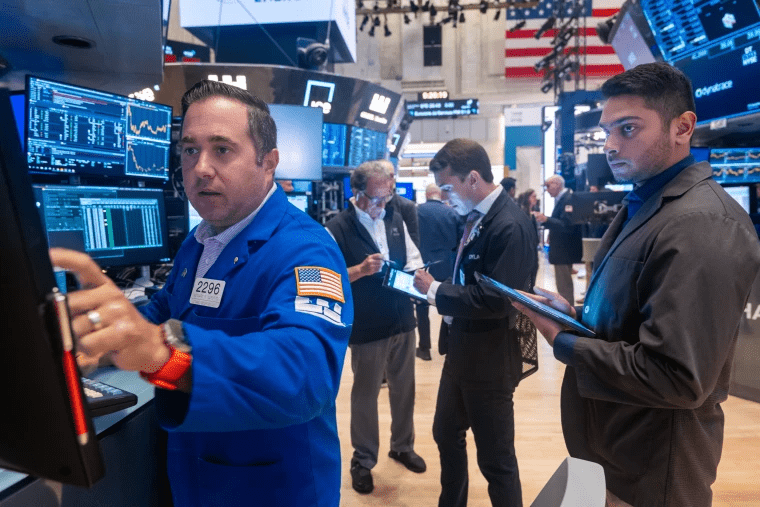
Wall Street Plummets Over 1,000 Points and Japanese Stocks Suffer Largest Decline Since 1987 as Global Markets Panic Over U.S. Economic Slowdown
Fiona Nanna, ForeMedia News
7 minutes read. Updated 12:23PM GMT Mon, 5August, 2024
The financial world is reeling today as Wall Street suffers a dramatic decline, with the Dow Jones Industrial Average plummeting over 1,000 points, a drop of approximately 2.7% as of 10:40 a.m. Eastern Time. This unprecedented fall in U.S. markets has sparked a global sell-off, exacerbating concerns about a slowing U.S. economy and its ripple effects across international financial systems.
Severe Market Reactions
The S&P 500 index fell by 3.1% in early trading, marking its most significant drop in nearly two years. The Nasdaq composite index experienced a steep decline of 3.6%. These losses are part of a broader trend affecting global markets. The Nikkei 225 index in Japan plunged by 12.4%, marking its worst day since the infamous Black Monday crash of 1987.
The drop follows a disappointing U.S. employment report released on Friday, which showed a much slower rate of hiring than anticipated. This report has intensified fears that the Federal Reserve’s prolonged high interest rates might be stifling economic growth too aggressively. In response, global markets have been reacting with heightened volatility.
Global Impact
South Korea’s Kospi index fell sharply by 8.8%, while European stock markets saw declines exceeding 2%. Cryptocurrencies have not been spared, with Bitcoin dropping by 7%. Even gold, traditionally viewed as a safe haven during times of economic uncertainty, fell by 1.7%, reflecting widespread investor anxiety.
The situation has raised speculation that the Federal Reserve might intervene sooner than expected. The yield on the two-year Treasury notes, which closely tracks Fed expectations, briefly dipped below 3.70% from 3.88% late Friday, though it later recovered. “The Fed could potentially respond with an emergency rate cut, but such measures are typically reserved for more dire situations,” stated Brian Jacobsen, Chief Economist at Annex Wealth Management. “Given the current unemployment rate of 4.3%, an emergency rate cut seems unlikely.”
Economic Projections and Market Sentiment
Despite the turmoil, some analysts argue that the U.S. economy is still growing, and a recession remains uncertain. Goldman Sachs economist David Mericle has raised the probability of a recession within the next 12 months to 25%, up from 15%. However, he emphasizes that current economic data remains relatively sound and does not indicate severe financial imbalances.
Recent market declines could be a natural correction following a period of excessive exuberance, particularly related to artificial intelligence and high expectations for future growth. “Markets tend to rise gradually and fall abruptly,” noted JJ Kinahan, CEO of IG North America. “The current decline may be a result of a market that had become overheated.”
Sector-Specific Struggles
U.S. small-cap stocks, as represented by the Russell 2000 index, dropped by 4.3%, further complicating what had been a recovering segment of the market. Big Tech stocks, which had driven significant market gains this year, also faced sharp declines. Notably, Apple shares fell by 5.1% after Warren Buffett’s Berkshire Hathaway disclosed a reduction in its stake in the company. Nvidia, a key player in the AI sector, saw a 7.7% drop following reports of delays in its new AI chip and revised profit forecasts.
Geopolitical and Political Uncertainty
Additional uncertainties are influencing market volatility. The ongoing Israel-Hamas conflict could further destabilize oil prices, adding to global financial concerns. Upcoming U.S. elections could also have significant implications for market dynamics and economic policies.
As Wall Street grapples with these issues, the implications for U.S. presidential politics could be profound. Vice President Kamala Harris may face increased scrutiny over economic policies, while former President Donald Trump may need to adjust his focus from inflation to strategies for economic revitalization.
For more in-depth analysis and updates on the market, visit Financial Times and Bloomberg.

